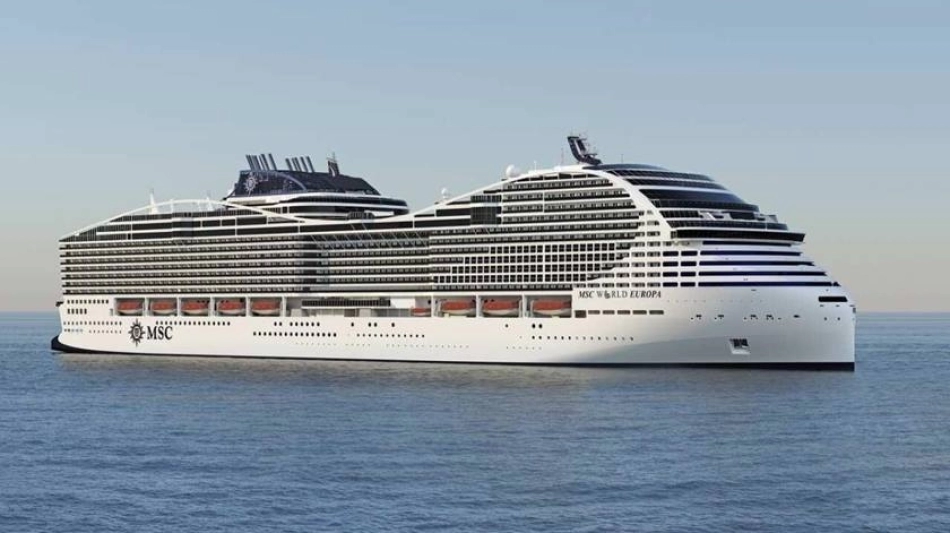Geneva: MSC Cruises announced the sailing of its latest ship MSC World Europa, to the State of Qatar in preparation for its naming ceremony, which will take place in Doha on November 13 for the reception of fans in the FIFA World Cup Qatar 2022.
The new ship, a modern floating hotel, consists of 22 floors with a width of 47 metres and includes 2,626 cabins and more than 40,000sqm of public space.
The ship keeps pace with the latest modern standards in technology and environmental-friendly practices, and is expected to reshape the future of cruise ships with an experience full of diverse recreational options.
The ship has a 104 metre outdoor walkway and it will take its guests on a tour in which they will discover different foods and drinks from around the world through 33 restaurants and lounges, each with its own character. It will also provide entertainment activities for all ages, including three new concerts, five new theater performances, four unique experiences in the ‘Panorama Lounge’, and live performances travelling in various areas on board the ship.
The floating hotel includes the largest children’s area compared to all the ships of the MSC fleet, with an internal area of more than 766sqm and seven rooms, each suitable for different age groups, from birth to 17 years old. Children and adolescents will enjoy various entertainment programmes including new and old games as well as talents programmes, delivered in facilities equipped with the latest technology.
The ship offers seven swimming pools, 13 whirlpools and the most luxurious yacht club, which includes public spaces, outdoor areas and new suites. It will spend its first year in the waters of the Arabian Gulf and, in the summer of 2023, it will leave the region, heading towards the Mediterranean.
MSC World Europa is the first ship in the MSC Cruises powered by liquefied natural gas, one of the cleanest fuels in the world, which is expected to play an important role in reducing carbon emissions from international shipping operations or bringing them to zero, and already contribute to the removal of emissions of local air pollutants such as sulfur oxides and reduce Nitrogen oxides by up to 85 per cent.
LNG also plays a prominent role in reducing climate change by reducing carbon dioxide emissions by 25 per cent and paving the way for the development of sustainable non-fossil fuels such as green hydrogen. The ship will include a fuel cell display that will test the technology’s efficiency in generating heat and electricity with more than 30 percent efficiency than liquefied natural gas engines.
The vessel is also equipped with selective catalytic reduction, port-supplied power supply, and advanced wastewater treatment systems that meet the highest regulatory requirements in the world, including the so-called Baltic Standard, the strictest standard for the disposal of wastewater at sea.
It also includes a system to reduce the impact of underwater sound to a minimum, and reduce the potential impact on marine mammals in the surrounding waters, in addition to providing the ship with devices and systems to rationalize and optimize energy. (QNA)


